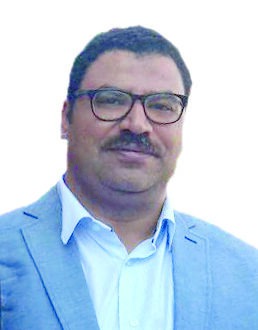Egyptian President Abdel Fattah El Sisi has hit a right chord when he urged developed countries to provide financial support to Africa to confront climate change and extend the transitional period for fulfilling renewable energy commitments in the continent.
Sisi’s comments which came in the fifth edition of the Egyptian Petroleum Show 2022 (EGYPS 2022), highlighted the dilemma of African countries that cannot alone afford the cost of such transition due to conditions resulting from historical circumstances and the period of colonialism.
During the inauguration of the show, held under the theme “North Africa and the Mediterranean: Delivering Energy Today,” the President stressed that African countries should not continue to pay the price of the repercussions of colonialism and the exploitation of their resources for many years, warning that African resourses should not be exploited again.
The president’s remarks augmented the suggestion that the coming UN Conference of Parties on Climate Change (COP27) will be Africa’s COP. He indicated that Africa awaits “objective, balanced, and fair decisions” from the international community in the COP27, which will be hosted by Egypt in November 2022 in Sharm El-Sheikh.
It’s clear that the coming Climate conference will be an opportunity for the continent to express refusal to remain in the position of those who pay the price for pollution caused by others.
It will be a chance to address the Africa’s paradox: a continent that produces less than 4 per cent of the global emissions is the most vulnerable to the climate change effects.
Africans are prone to the most severe global warming consequences, including droughts, flooding, tropical storms, heatwaves, water shortages and coastal inundation.
And in spite of producing oil and gas in large quantities, nearly 900 million people in Africa still use premature ways of cooking, which lead to around 500,000 premature fatalities annually, especially among women, as a result of the emissions produced through the use of premature fuels such as coal, wood, and undeveloped biomass, while nearly 70 per cent of Africa’s petroleum and 45 per cent of its natural gas are exported and not benefited from them in local transformative articles or energy generation. So what exactly the continent is going to cut!
And while the continent is lacking renewable energy investments despite its great potential, how can African nations go on with their development plans without utilising their only available resources?
A swift transition is indeed crucial in the global fight against climate change. However, this seems to be particularly costly in poorer nations.
Is it fair to ask African countries with abundance of fossil fuels, including natural gas, to cease channeling their resources to the much-needed development? Is it fair to leave neediest countries with limited financial resources to cope with the consequences of global warming and lead a costly energy transition?
It seems that the only solution is to set for Africa its own transition plan, which should be different from the plan of developed countries, for which developed countries have not only to give financial support but also have to transfer technical knowledge on renewable energy to Africa.






Discussion about this post